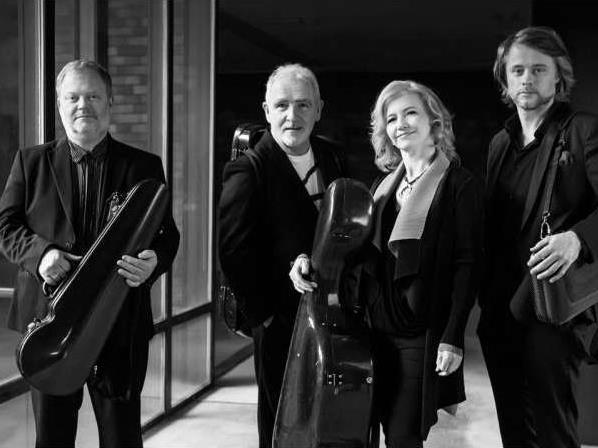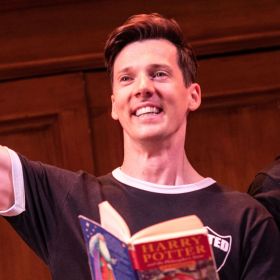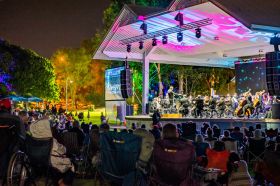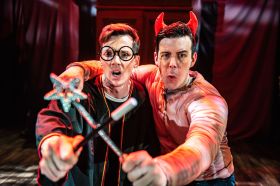Image: supplied.
An enviable 47-year-old career precedes this English ensemble that has, along the way, been adorned with many significant awards. Cross-over collaborations with Björk, Elvis Costello and Paul McCartney have broadened the chamber music ensemble’s global audience. Well known from previous Australian tours, the Brodsky Quartet’s programming has always been edgy and unconventional. The ensemble has developed a particular affinity with Shostakovich’s 15 string quartets, performing them as a cycle most recently at the Perth Festival. Another characteristic of this Quartet is the vibrancy of its sound, three of the upper strings standing as they perform with the cellist on a raised platform. On this tour to Australia and New Zealand they are performing for the first time with their brilliant new first violinist Gina McCormack.
On Sunday afternoon the Quartet performed to an almost full house for the excellent Utzon Music Series at the Sydney Opera House in a well-crafted program that used the contrapuntal Baroque form of the Fugue as its point of reference. Their recital began with two movements from Johann Sebastian Bach’s The Art of Fugue, BWV1080, a text-book exploration of the form for unspecified instruments. This was followed by Mozart’s Adagio and Fugue, K546, the fourth fugal movement of Mendelssohn’s Four Pieces for string quartet, Op 81 and Beethoven’s Große Fuge in B flat major, Op 133. It then concluded with Shostakovich’s contrapuntal String Quartet No 8 in C minor, Op 110.
The Utzon Room is an elegant space; a glass wall behind the performers provides a glorious view of Sydney Harbour, though this does not assist the acoustic. On the wall facing this spectacular backdrop is a vast tapestry of Utzon’s Homage to C.P.E. Bach. This also does not help the Room’s sound, but it looks magnificent, with intersecting and superimposed shapes and colours acting as a visual manifestation of the musical counterpoint we were about to hear.
Bach’s contrapuntal shapes were satisfyingly realised at the outset by the ensemble, with minimal vibrato affording calm and careful logic. Excellent intonation and close rapport became immediately evident. Mozart’s ode to Bach suffered from some intonation problems whilst Mendelssohn’s expansive Fugue was tenderly introduced and was performed with tempered dynamics and shaded phrasing. Described as ‘a tour de force of string quartet writing’ in Gordon Kerry’s fine annotation, Beethoven’s great fugue was overbrimming with vitality and excitement, the counterpoint barely holding together as its jolting theme was wrestled between instruments.
In stark contrast to the calm logic provided by the Bach, Beethoven’s second last quartet seemed almost to shatter or deconstruct the form, a juxtaposed bookend to the recital’s first half.
But everyone in attendance was waiting for what followed: Shostakovich’s tragic eighth Quartet, written after the composer had witnessed the devastation of WWII in Dresden. At this time of his life the composer was suicidal and the eighth Quartet might well have been his swansong. A continuous composition comprising five connecting movements, three of them marked ‘largo’, the Brodsky Quartet gave a searing account of the Allegro molto and a profoundly moving performance of the final two ‘largo’ movements; more than ten minutes of deep anxiety, sorrow and despair. I was reminded during this performance that only chamber music has the ability to draw in the attention of the audience so intensely to such confronting experiences. Following final sighs of resignation, the last breath came and the music stopped. A long silence was held by the performers and audience before rapturous applause.
4 ½ stars out of 5: ★★★★☆
Brodsky Quartet
5 May 2019
2019 Utzon Music Series, Sydney Opera House





